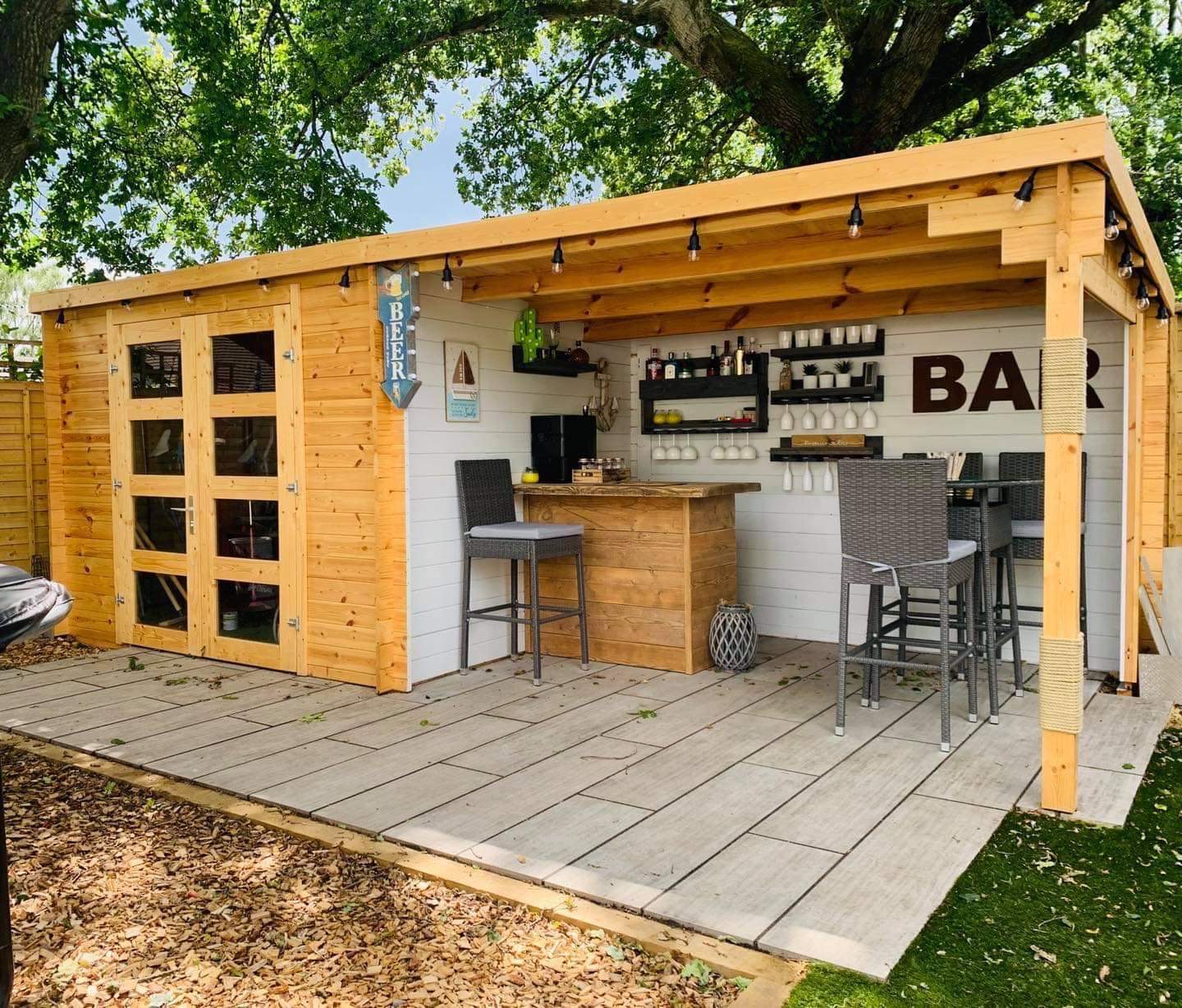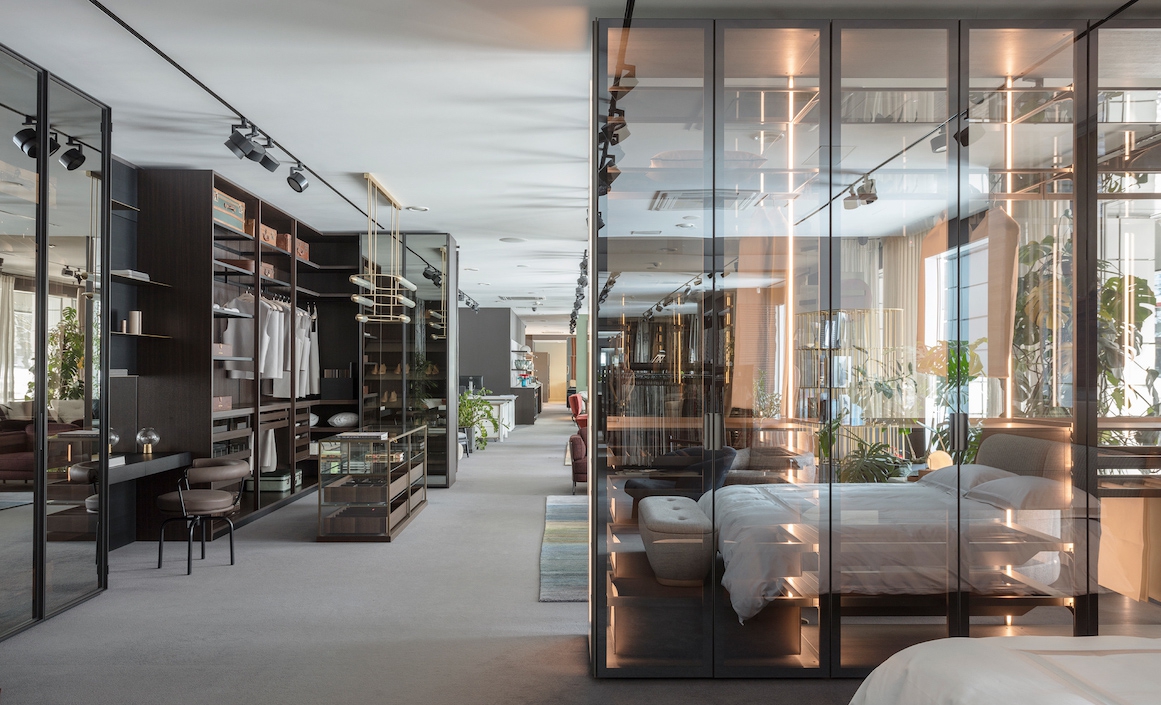Although hardly any business has benefited from the UK leaving the European Union, it remains a tempting market. Timber processing companies have long been the best performing there, but experts also see potential for information technology and defence companies in the future.
“The UK is an important market for Latvia, especially for timber processing businesses. Our companies consider it their home market and all British procurers know about Latvia. Latvian companies generate several hundred million euros in sales annually in this sector in the UK,” Ivars Žukovskis, Head of the Investment and Development Agency of Latvia Representative Office in the UK, says.
In the third quarter of 2023, Latvian exports of timber and timber products to the UK amounted to €425 million. “I think that by the end of the year, exports of timber products will reach half a billion euros,” he says.
A big country requires volumes
From his experience Aigars Zelmens, the owner and manager of interior designers Krassky, knows that in the UK market consumers can afford to pay more for a special experience, good service and a unique product. In contrast, Žukovskis notes that in the UK, it is often a competitive price that matters, not a unique offer. “The UK is a big country, and many Latvian companies simply cannot reach an output the market demands. We are a relatively small economy, and our big businesses are often like foreign SMEs. So you have to understand that often it can be simply impossible to supply specific products to, say, Tesco’s,” he says.
For example, while the UK may be an attractive market for food manufacturers, it is also important to remember that the big retail chains would want to order really large volumes, and not all companies can do that. “I have seen Laima products in Sainsbury’s. Companies of this scale can do it, but it would be a huge challenge for smaller players," Žukovskis says.

He notes that each area of the UK is a market of its own, e.g. London, Wales, Northern Ireland, etc. “All these are geographically and culturally different areas. Similarly, Britain is not just British or English. For example, in London there are many Eastern Europeans, including Latvians, Baltics, Poles, etc., and there are special shops selling products for this target group. Canelle Bakery products for one have always been present in these stores, and this year, Milzu! cereals have joined the party,” Žukovskis says.
A commercially mature market
Zelmenis adds that the UK is an expensive country in every sense. “When I think of the price we have paid to rent the showroom space, I feel sick. Sales were good, but all the profit was eaten up by high wages, rent and property taxes,” he says.
The UK is also a very mature market commercially. It affects what goods and services are available on the market.
“There is a specialisation for everything. For example, in Latvia we install carpets on site with our own installation team, but in the UK there is one team which can only carry carpets and another team which can move furniture because each has its own insurance cover. It means that the company which brings and lays the carpet is not covered for the cost of floors scratched when moving furniture,” Zelmenis explains.
Go for smaller partners
The UK accounts for around 10% of the sales of Selijas Mežs, a manufacturer of the garden summer houses. Previously, the company worked with France, partnering with the big retail chains there. “Supermarket chains have always determined what product and at what price they will buy. So at some point we realised that we wanted to work in a slightly different way: with smaller partners whose orders are not so large that the demand is greater than our capacity,” Ivars Dričs, a member of the Board of the Sēlijas Mežs, says.

In the UK, the company works with multiple smaller clients. This approach helps negotiate more favourable terms, even considering currency fluctuations. “In the UK, we also have all our contracts in euros, so exchange rate fluctuations are the client’s risk, not ours. It would be impossible to work like this with large partners, because they don’t get into any unnecessary discussions,” Dričs says.
Sēlijas Mežs has been using this model for more than five years and does not see any need to return to the large wholesalers or chains.
“There is one very important nuance in working with large retail chains that makes cooperation quite stressful. Namely, they announce a tender. If the company wins, it will be the one supplying the goods for the contract duration. But you never know if you’ll win the next tender. Of course, there may also be all sorts of changes when working with small traders, but they are more predictable. In addition, when we work for large customers, we can make certain goods for them only,” explains Dričs.
Customers are demanding
Dričs says that consumers in the UK are very demanding: “If they have ordered products which are not on the cheaper end, they want everything to be perfect. It is therefore important not to skimp on quality of essential product ingredients, as there will be fewer after-sales service problems. It is cheaper to make a quality product than to repair, send and change parts afterwards. And it is very expensive to send goods to the UK.”
Sēlijas Mežs works with a diaspora representative who has become a partner of the company. “Working with a diaspora representative, we can get more detailed information both about the sales process and his experience in this market, as supermarket chains and large buyers share very little of this information. It is their trump card,” Dričs says.
Be in the right place
When Krassky already had a showroom in Rīga and one in Moscow, many said that they should open one in London. “As a result of these stimuli, we began studying the market and realised that there was an free niche. The greatest potential was in designer carpets,” Zelmenis says.
Opening a showroom in London was not easy. The project was delayed by a year: the showroom was originally scheduled to open in 2012, but it happened a year later, in 2013. Finding suitable property for the showroom was a challenge, as location is important in London. Krassky’s target group is high-income earners and interior designers.

“As a rule, in London, you have to hit the right spot with your niche product. With our target audience, we could only “afford” to see properties in Mayfair, Belgravia and Chelsea. But there are literally three or four streets in these neighbourhoods that are worth being in, because if you’re not in the right spot, you simply won’t get noticed,” Zelmenis explains.
Another challenge is that property owners own entire street blocks and look very carefully at how a tenant would fit into the concept of that particular street section. For example, Krassky lost a bid for a good property because the landlord wanted to develop an upmarket fashion street. After a while, a Chanel store opened there.
First the address, then the company registration
Krassky hired a lawyer to set up a company in the UK. The most difficult part was opening a bank account, as two banks rejected them without any explanation. It turned out that Latvia was on the grey list at the time. However, with the help of a British accountant who introduced them to his private banker, Krassky was able to get a bank account.
“To start something in the UK, a company representative needs a local address and an insurance number. Before we could set up a business, we had to get an address, even if we didn’t live there. Perhaps something has changed over the years,” Zelmenis admits.
Know local manners
“Relationship building is very important. They are very nice, smiley and polite in a daily life. But to get any closer, how often you’ve met, whether you have any common interests, values and goals matter immensely. Once they have realised that you are one of their own, they will recommend you further and many doors will open,” Zelmenis says.
Krassky’s target audience is wealthy people. To have a meaningful relationship with such people, you need to know local manners. “For example, an invitation for a coffee is an everyday thing, but when you are invited for a tea at someone’s home, it is worth a lot. Invitation to dinner is also something that the receiving party usually prepares for, especially if it’s at their home," Zelmenis says. Understanding these differences is particularly important because, in his experience, everything in the UK is based on mutual recommendations.

Kaspars Litavnieks, Senior Business Development Manager at Aerones, a robotic wind turbine maintenance and inspection company, also recommends doing your research and homework before starting a business in the UK, rather than blindly emailing strangers about your product or service. “First you need to understand the demand for the product or service in that market, and then you can start researching who would be the right people to meet and start communication,” he advises.
That is why Aerones travels to various industry exhibitions and conferences. “Every market, every country has its own specifics, so we approach players in a particular market,” Litavnieks says.
Relationships require investment
Zelmenis notes that in the UK, searching Google will often get you nowhere without a personal recommendation. Žukovskis also says that cold calls are also a bit foolhardy. Instead, it is about carefully and patiently forging good relationships and networking:
“Entrepreneurs often think that if they have done something in the South of England, they can repeat the same in another area. But this is not true. There are different distributors in each region who do not know each other. But people know their former colleagues or mates from their rugby team, and the challenge is to figure out how to get inside that bubble,” he says. That is why Litavnieks stresses the need to take relationship building seriously: “To establish lasting cooperation, you need to build personal and human relationships and nurture them. It’s also important to go for a beer with your customers, it’s important in British culture.”
Nobody is happy about Brexit
Žukovskis says that Brexit is like a return to the past: customs, certification different from the European Union. “It’s a headache for everyone. I have yet to meet a single British entrepreneur who would say that leaving the European Union has been good. But not to worry, Latvian exporters have a long experience of working in the markets even more exotic than the UK today. The right partners will help you do it all,” he encourages.

For example, Aerones started working with its customers in the UK after the UK left the European Union. “There is a clear difference in how we work in the UK and the rest of Europe. All the paperwork and bureaucracy in the UK is much more complex,” Litavnieks says.
Dričs adds that delivery to the UK has become slightly more expensive since leaving the EU due to more bureaucracy at the border. Pallets also must be labelled differently, as the UK is now a third country. “We’re doing all that and keep working,” he says.
Brexit and Covid-19 brought things to an end
Zelmenis admits that the UK’s exit from the European Union had a strong impact on Krassky’s business in that market. After Brexit, London started to lose its appeal to foreign capital. Increasing numbers of companies have started moving their headquarters to the Netherlands, Germany or France, which is just across the Channel. "”Both capital and people started to flee, because only those who had lived there for five years and could get a permanent residence permit could remain,” Zelmenis says.
And then came Covid-19, which made the situation even more dramatic. “If we had stronger sales results or a hungrier sales team, we might have kept our business in London. But with the problems brought by Brexit and Covid-19, I myself lost motivation and we decided to shut down the London showroom,” Zelmenis says.

An additional challenge was how people advertised themselves. It can be seen in job interviews and other life situations alike. He therefore recommends looking only at results and keeping a critical eye when, for example, a partner or an employee promises to close a deal next month, but three months later it hasn’t happened and each time there is a new excuse. “People in the UK are extremely skilled at presenting things in progress as a done deal,” Zelmenis observed.
Litavnieks has similar experience: “You must hold the British to their word because there are often many promises, but if you lose sight of communication for a while, you will have to start all over again.”
The potential is great
“The UK is a very close partner for us, both politically and in terms of security. Considering that we can supply products which are 100% made in the EU and NATO territory, Latvia and the UK can work together quite naturally. The security and defence sector is certainly an area where we can do even more. IT solutions also have great potential. There are no limits, everything can be done. We just need to work more on our country image,” Žukovskis says.
Article prepared in cooperation with Latvian Exporters Association "The Red Jackets", www.eksportabarometrs.lv.


